Mulch is a common garden material that can be made from a variety of organic materials, such as bark, leaves, and wood chips.
Mulch is often used to cover the soil around plants, which can help retain moisture and prevent weeds from growing. However, some people believe that mulch can also attract pests, such as termites.
So, does mulch attract termites? The answer is not entirely clear. It is possible that mulch may only attract termites if it is made from certain materials, such as wood chips. If you’re concerned about attracting termites, you may want to avoid using mulch made from wood products.
In this blog post, we’ll explore the benefits of using mulch to control termites, as well as some of the best mulch options for termite control.
Table of Contents
Do Termites Like Mulch?
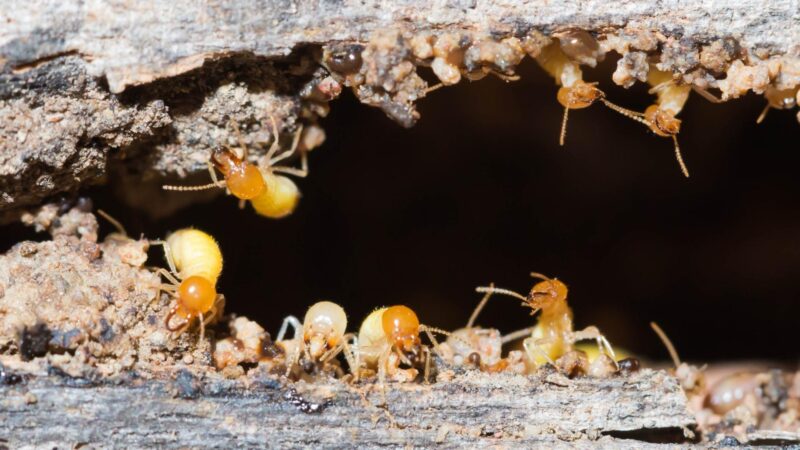
It has long been believed that termites are attracted to mulch, but recent studies have shown that this may not be the case. While termites may be attracted to the wood in mulch, they are not drawn to the mulch itself.
This means you don’t need to worry about termites being attracted to your mulch pile.
It is believed that termites are attracted to the cellulose in wood, which is a major component of their diet. This means that termites will typically only go after mulch if there is no other source of food available.
While you don’t need to worry about termites being attracted to your mulch, you should still take precautions to prevent them from gaining access to your home.
Make sure to keep mulch away from the foundation of your home and keep it away from any areas where termites could enter. You should also inspect your mulch regularly to ensure that there are no signs of termite activity.
Are Bugs Attracted to Mulch?
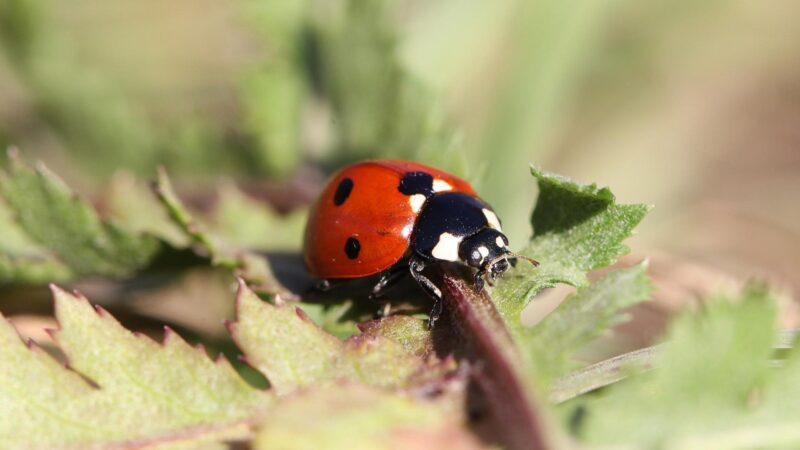
Bugs are often attracted to mulch because it provides them with food and shelter. The mulch itself is not usually the problem – it’s what’s living in the mulch that can be problematic for your plants.
Some bugs, like termites and carpenter ants, can damage the mulch and the plants around it. Other bugs, like pillbugs and earwigs, are simply a nuisance.
If you’re having problems with bugs in your mulch, the best solution is to remove the mulch and start fresh. You can also try using a different type of mulch, like straw or hay, which are less attractive to bugs.
Whatever you do, make sure you keep an eye on your mulch and your plants so you can address any problems early on.
Should Mulch Be Treated for Termites?
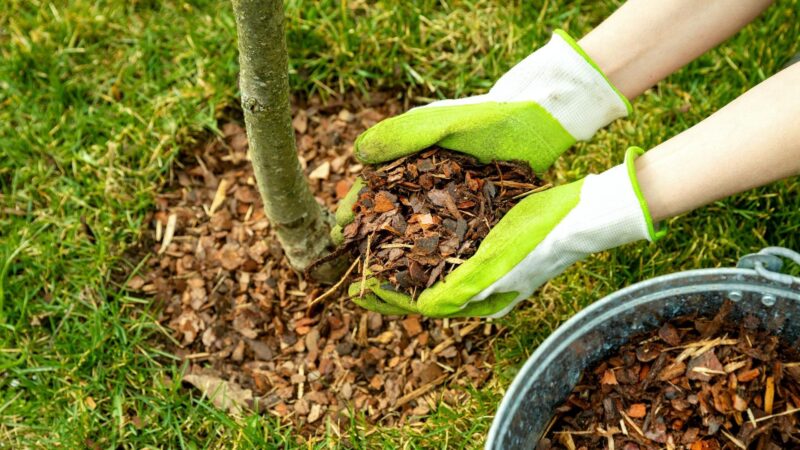
Mulch is a common material used in landscaping and gardening. It can be made from organic materials like bark or leaves, or inorganic materials like rocks or gravel.
Mulch is often used to help control weeds, retain moisture, and protect plants from extreme temperatures.
Mulch can also be a food source for termites. If you have termites in your mulch, they may eventually find their way into your home, where they can cause serious damage.
That’s why some experts recommend treating mulch for termites, especially if you live in an area with a high risk of infestation.
There are a few different ways to treat mulch for termites. You can use chemicals, physical barriers, or organic controls.
Chemical treatments are the most common, but they can be dangerous to people and pets if used improperly.
What Is the Best Mulch to Use to Avoid Termites?
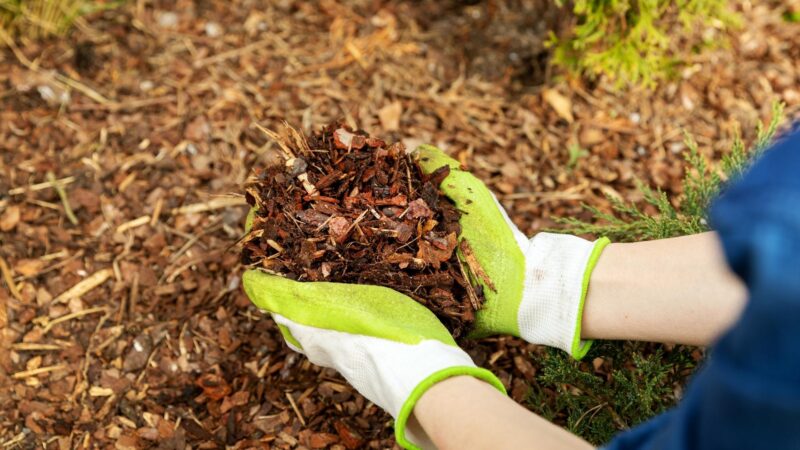
There are many different types of mulch available on the market, and each has its benefits. But if you’re looking for a mulch that will help you avoid termites, there are a few that stand out from the rest.
Here are a few of the best mulch options to help you avoid termites:
- Cedar mulch: Cedar is a naturally termite-resistant wood, making it an ideal mulch for those looking to avoid these pests.
- Cypress mulch: Cypress is another termite-resistant wood that makes for an effective mulch.
- Pine straw: Pine straw is an effective mulch for deterring termites, as the needles of the pine tree are naturally resistant to these pests.
No matter which mulch you choose, be sure to stay away from mulches made from treated wood, as this can attract termites.
Is It Ok to Put Mulch Around Your House?
Mulch is a material (usually organic) that is spread around or over the surface of the soil. It is used to retain moisture in the soil, prevent erosion, and provide nutrients for plants.
Also, it can be used as a decorative element in your landscaping.
It is fine to put mulch around your house. However, there are a few things you should keep in mind. First, make sure you choose the right type of mulch for your needs. Second, be sure to spread it evenly around your plants to avoid over or under-watering.
Finally, don’t forget to remove any excess mulch from your home’s foundation to prevent termites and other pests from taking up residence.
With a little planning, mulch can be a great addition to your home’s landscaping. Just be sure to take the time to do it right!
Can Wood Chips Bring Termites?
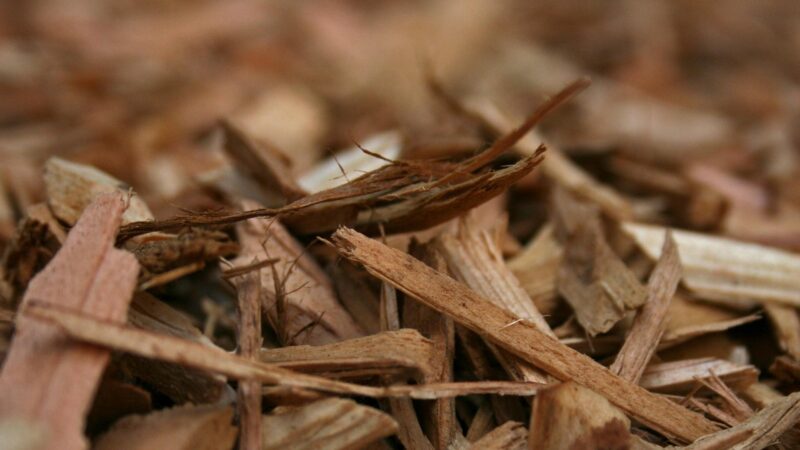
There is a popular belief that wood chips can bring termites into your home. However, there is no scientific evidence to support this claim. In fact, termites are more likely to be attracted to rotting wood, which is often found near wood chips. If you have termites in your home, it is best to consult a professional to get rid of them.
So, while wood chips may not directly attract termites, they can still create an environment that is conducive to their presence. If you have wood chips near your home, be sure to keep an eye out for signs of termites and take action if necessary.
Should You Remove Old Mulch Every Year?
Mulch is a great way to protect your plants and help your garden retain moisture. But if you don’t remove it every year, it can start to break down and become ineffective.
There are a few things to consider when you decide to remove old mulch every year. First, the type of mulch you are using. If it’s a biodegradable mulch like wood chips or shredded leaves, then it’s probably fine to leave it in place.
However, if you’re using synthetic mulch like plastic, you’ll need to remove it every year to prevent it from breaking down.
Second, thick of your mulch layer. If it’s more than a few inches thick, you may want to remove some of it to prevent it from smothering your plants. Lastly, the condition of your mulch.
If it’s starting to break down and become ineffective, it’s probably time to replace it.
In general, it’s a good idea to remove old mulch every year to keep your garden healthy and productive.
Frequently Asked Questions
Is Untreated Mulch Safe?
Untreated mulch is safe. Many organic mulches are safe for cultivated plants and vegetables. They will need to be refreshed periodically as they decompose, but as long as you let them compost in place, you can use mulch for a variety of purposes.
It is important not to place designer woodchips far beneath the soil surface, however, or make sure that if you do age it first because decomposed wood chips make excellent fertilizer!
Does Mulch Keep Bugs Away?
Mulch alone will not keep bugs away from your property. However, if you decide to supplement your mulch with an insecticide, such as Diatomaceous Earth, applied around mulch can repel insects and nuisances, the mulch will help increase its effectiveness.
Is Mulch a Fire Hazard?
Mulch can be combustible, especially if it is dry. Dry mulch away from the house, and always keep a fire extinguisher nearby.
Do Snakes Hide in Mulch?
Snakes have been known to hide in mulch, particularly chipped hardwood mulch, which is made from trees that snakes like to live near or in. Snakes may be found hiding underneath pieces of bark, logs, or other heavy vegetation during the day. At night, snakes are more active and may be found hunting for food or moving about their territory.
Do Bees Nest in Mulch?
Bees do not exactly nest in mulch. While mulch can serve as a helpful supplement to bee nests and help insulate their hives in the winter months, bees have been known to nest above ground in stumps, shrubs, hollow logs, and hollow trees.
Though they are occasional honey makers from these types of hives, bees are mostly relying on nectar sources for making honey.
What Kind of Mulch Is Best for Around the House?
The most popular choices for mulch are wood chips and pine needles. Both types of mulch help the soil stay moist and help prevent weeds from growing.
Summary
Mulch is often used in landscaping, but it can also be a food source and home for termites. Termites are attracted to mulch because it is full of cellulose, which is a primary food source for them. You can control termites in mulch by using an insecticide or baiting system.
List of Sources
The Facts About Termites and Mulch